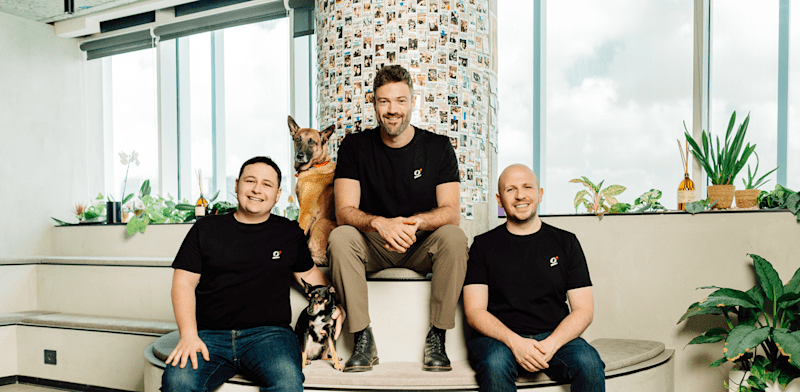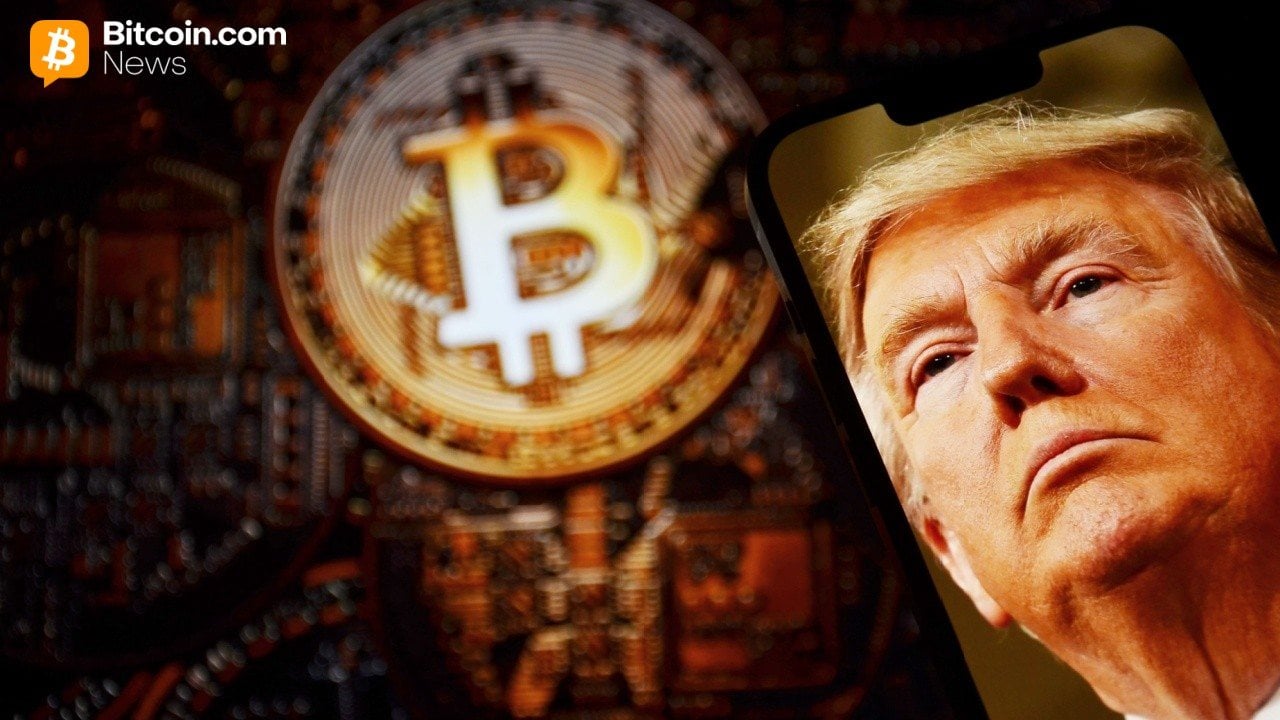First it was the release of GPT-5 that OpenAI “totally screwed up,” according to Sam Altman. Then Altman followed that up by saying the B-word at a dinner with reporters. “When bubbles happen, smart people get overexcited about a kernel of truth,” The Verge reported on comments by the OpenAI CEO. Then it was the sweeping MIT survey that put a number on what so many people seem to be feeling: a whopping 95% of generative AI pilots at companies are failing.
A tech sell-off ensued, as rattled investors sent the value of the S&P 500 down by $1 trillion. Given the increasing dominance of that index by tech stocks that have largely transformed into AI stocks, it was a sign of nerves that the AI boom was turning into dotcom bubble 2.0. To be sure, fears about the AI trade aren’t the only factor moving markets, as evidenced by the S&P 500 snapping a five-day losing streak on Friday after Jerome Powell’s quasi-dovish comments at Jackson Hole, Wyoming, as even the hint of openness from the Fed chair toward a September rate cut set markets on a tear.
Gary Marcus has been warning of the limits of large language models (LLMs) since 2019 and warning of a potential bubble and problematic economics since 2023. His words carry a particularly distinctive weight. The cognitive scientist turned longtime AI researcher has been active in the machine learning space since 2015, when he founded Geometric Intelligence. That company was acquired by Uber in 2016, and Marcus left shortly afterward, working at other AI startups while offering vocal criticism of what he sees as dead-ends in the AI space.
Still, Marcus doesn’t see himself as a “Cassandra,” and he’s not trying to be, he told Fortune in an interview. Cassandra, a figure from Greek tragedy, was a character who uttered accurate prophecies but wasn’t believed until it was too late. “I see myself as a realist and as someone who foresaw the problems and was correct about them.”
Marcus attributes the wobble in markets to GPT-5 above all. It’s not a failure, he said, but it’s “underwhelming,” a “disappointment,” and that’s “really woken a lot of people up. You know, GPT-5 was sold, basically, as AGI, and it just isn’t,” he added, referencing artificial general intelligence, a hypothetical AI with human-like reasoning abilities. “It’s not a terrible model, it’s not like it’s bad,” he said, but “it’s not the quantum leap that a lot of people were led to expect.”
Marcus said this shouldn’t be news to anyone paying attention, as he argued in 2022 that “deep learning is hitting a wall.” To be sure, Marcus has been wondering openly on his Substack on when the generative AI bubble will deflate. He told Fortune that “crowd psychology” is definitely taking place, and he thinks every day about the John Maynard Keynes quote: “The market can stay solvent longer than you can stay rational,” or Looney Tunes’s Wile E. Coyote following Road Runner off the edge of a cliff and hanging in midair, before falling down to Earth.
“That’s what I feel like,” Marcus says. “We are off the cliff. This does not make sense. And we get some signs from the last few days that people are finally noticing.”
Building warning signs
The bubble talk began heating up in July, when Apollo Global Management’s chief economist, Torsten Slok, widely read and influential on Wall Street, issued a striking calculation while falling short of declaring a bubble. “The difference between the IT bubble in the 1990s and the AI bubble today is that the top 10 companies in the S&P 500 today are more overvalued than they were in the 1990s,” he wrote, warning that the forward P/E ratios and staggering market capitalizations of companies such as Nvidia, Microsoft, Apple, and Meta had “become detached from their earnings.”
In the weeks since, the disappointment of GPT-5 was an important development, but not the only one. Another warning sign is the massive amount of spending on data centers to support all the theoretical future demand for AI use. Slok has tackled this subject as well, finding that data center investments’ contribution to GDP growth has been the same as consumer spending over the first half of 2025, which is notable since consumer spending makes up 70% of GDP. (The Wall Street Journal‘s Christopher Mims had offered the calculation weeks earlier.) Finally, on August 19, former Google CEO Eric Schmidt co-authored a widely discussed New York Times op-ed on August 19, arguing that “it is uncertain how soon artificial general intelligence can be achieved.”
This is a significant about-face, according to political scientist Henry Farrell, who argued in the Financial Times in January that Schmidt was a key voice shaping the “New Washington Consensus,” predicated in part on AGI being “right around the corner.” On his Substack, Farrell said Schmidt’s op-ed shows that his prior set of assumptions are “visibly crumbling away,” while caveating that he had been relying on informal conversations with people he knew in the intersection of D.C. foreign policy and tech policy. Farrell’s title for that post: “The twilight of tech unilateralism.” He concluded: “If the AGI bet is a bad one, then much of the rationale for this consensus falls apart. And that is the conclusion that Eric Schmidt seems to be coming to.”
Finally, the vibe is shifting in the summer of 2025 into a mounting AI backlash. Darrell West warned in Brookings in May that the tide of both public and scientific opinion would soon turn against AI’s masters of the universe. Soon after, Fast Company predicted the summer would be full of “AI slop.” By early August, Axios had identified the slang “clunker” being applied widely to AI mishaps, particularly in customer service gone awry.
History says: short-term pain, long-term gain
John Thornhill of the Financial Times offered some perspective on the bubble question, advising readers to brace themselves for a crash, but to prepare for a future “golden age” of AI nonetheless. He highlights the data center buildout—a staggering $750 billion investment from Big Tech over 2024 and 2025, and part of a global rollout projected to hit $3 trillion by 2029. Thornhill turns to financial historians for some comfort and some perspective. Over and over, it shows that this type of frenzied investment typically triggers bubbles, dramatic crashes, and creative destruction—but that eventually durable value is realized.
He notes that Carlota Perez documented this pattern in Technological Revolutions and Financial Capital: The Dynamics of Bubbles and Golden Ages. She identified AI as the fifth technological revolution to follow the pattern begun in the late 18th century, as a result of which the modern economy now has railroad infrastructure and personal computers, among other things. Each one had a bubble and a crash at some point. Thornhill didn’t cite him in this particular column, but Edward Chancellor documented similar patterns in his classic Devil Take The Hindmost, a book notable not just for its discussions of bubbles but for predicting the dotcom bubble before it happened.
Owen Lamont of Acadian Asset Management cited Chancellor in November 2024, when he argued that a key bubble moment had been passed: an unusually large number of market participants saying that prices are too high, but insisting that they’re likely to rise further.
Wall Street banks are largely not calling for a bubble. Morgan Stanley released a note recently seeing huge efficiencies ahead for companies as a result of AI: $920 billion per year for the S&P 500. UBS, for its part, concurred with the caution flagged in the news-making MIT research. It warned investors to expect a period of “capex indigestion” accompanying the data center buildout, but it also maintained that AI adoption is expanding far beyond expectations, citing growing monetization from OpenAI’s ChatGPT, Alphabet’s Gemini, and AI-powered CRM systems.
Bank of America Research wrote a note in early August, before the launch of GPT-5, seeing AI as part of a worker productivity “sea change” that will drive an ongoing “innovation premium” for S&P 500 firms. Head of U.S. Equity Strategy Savita Subramanian essentially argued that the inflation wave of the 2020s taught companies to do more with less, to turn people into processes, and that AI will turbo-charge this. “I don’t think it’s necessarily a bubble in the S&P 500,” she told Fortune in an interview, before adding, “I think there are other areas where it’s becoming a little bit bubble-like.”
Subramanian mentioned smaller companies and potentially private lending as areas “that potentially have re-rated too aggressively.” She’s also concerned about the risk of companies diving into data centers too such a great extent, noting that this represents a shift back toward an asset-heavier approach, instead of the asset-light approach that increasingly distinguishes top performance in the U.S. economy.
“I mean, this is new,” she said. “Tech used to be very asset-light and just spent money on R&D and innovation, and now they’re spending money to build out these data centers,” adding that she sees it as potentially marking the end of their asset-light, high-margin existence and basically transforming them into “very asset-intensive and more manufacturing-like than they used to be.” From her perspective, that warrants a lower multiple in the stock market. When asked if that is tantamount to a bubble, if not a correction, she said “it’s starting to happen in places,” and she agrees with the comparison to the railroad boom.
The math and the ghost in the machine
Gary Marcus also cited the fundamentals of math as a reason that he’s concerned, with nearly 500 AI unicorns being valued at $2.7 trillion. “That just doesn’t make sense relative to how much revenue is coming [in],” he said. Marcus cited OpenAI reporting $1 billion in revenue in July, but still not being profitable. Speculating, he extrapolated that to OpenAI having roughly half the AI market, and offered a rough calculation that it means about $25 billion a year of revenue for the sector, “which is not nothing, but it costs a lot of money to do this, and there’s trillions of dollars [invested].”
So if Marcus is correct, why haven’t people been listening to him for years? He said he’s been warning people about this for years, too, calling it the “gullibility gap” in his 2019 book Rebooting AI and arguing in The New Yorker in 2012 that deep learning was a ladder that wouldn’t reach the moon. For the first 25 years of his career, Marcus trained and practiced as a cognitive scientist, and learned about the “anthropomorphization people do. … [they] look at these machines and make the mistake of attributing to them an intelligence that is not really there, a humanness that is not really there, and they wind up using them as a companion, and they wind up thinking that they’re closer to solving these problems than they actually are.” He said he thinks the bubble inflating to its current extent is in large part because of the human impulse to project ourselves onto things, something a cognitive scientist is trained not to do.
These machines might seem like they’re human, but “they don’t actually work like you,” Marcus said, adding, “this entire market has been based on people not understanding that, imagining that scaling was going to solve all of this, because they don’t really understand the problem. I mean, it’s almost tragic.”
Subramanian, for her part, said she thinks “people love this AI technology because it feels like sorcery. It feels a little magical and mystical … the truth is it hasn’t really changed the world that much yet, but I don’t think it’s something to be dismissed.” She’s also become really taken with it herself. “I’m already using ChatGPT more than my kids are. I mean, it’s kind of interesting to see this. I use ChatGPT for everything now.”
























